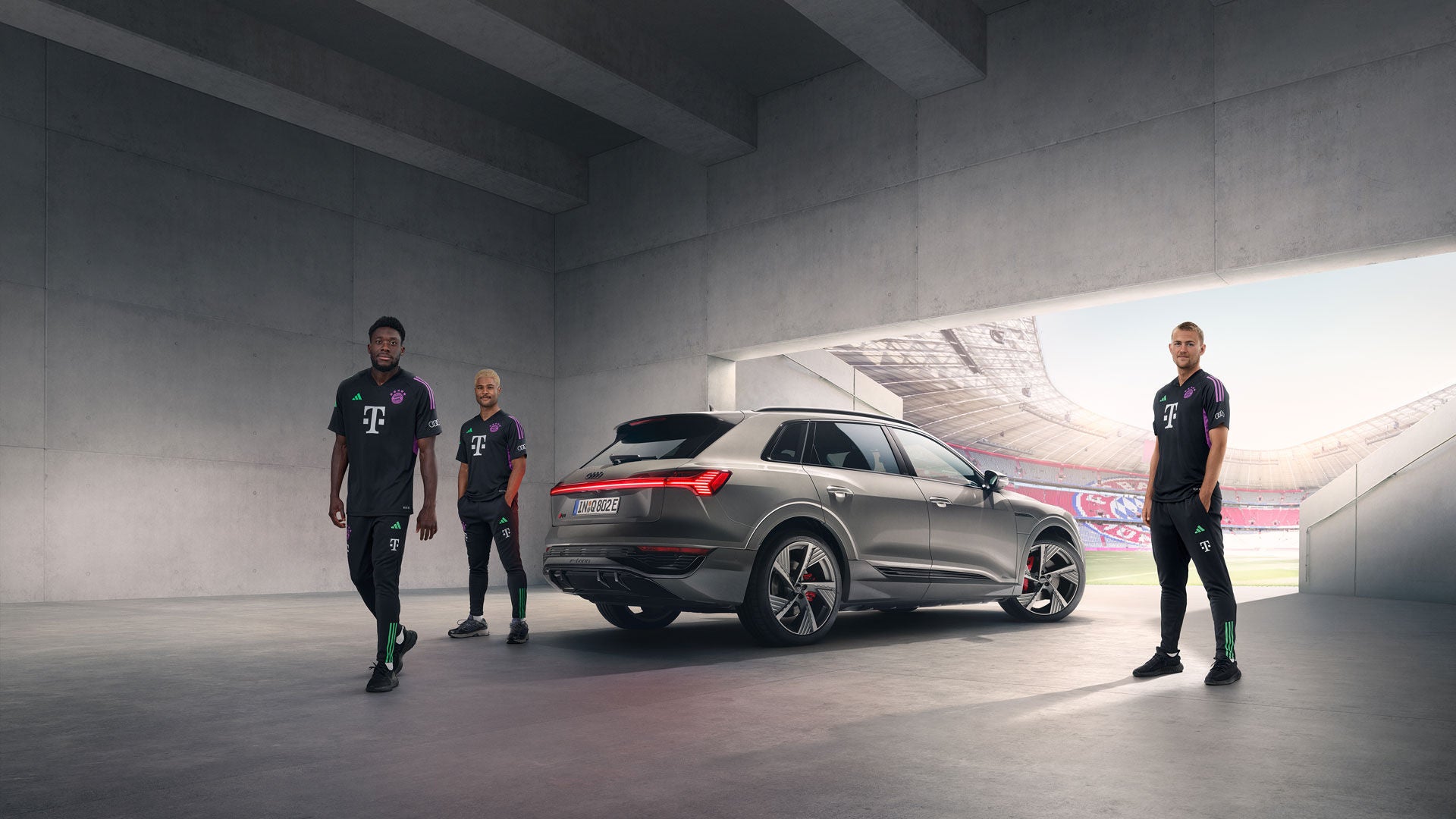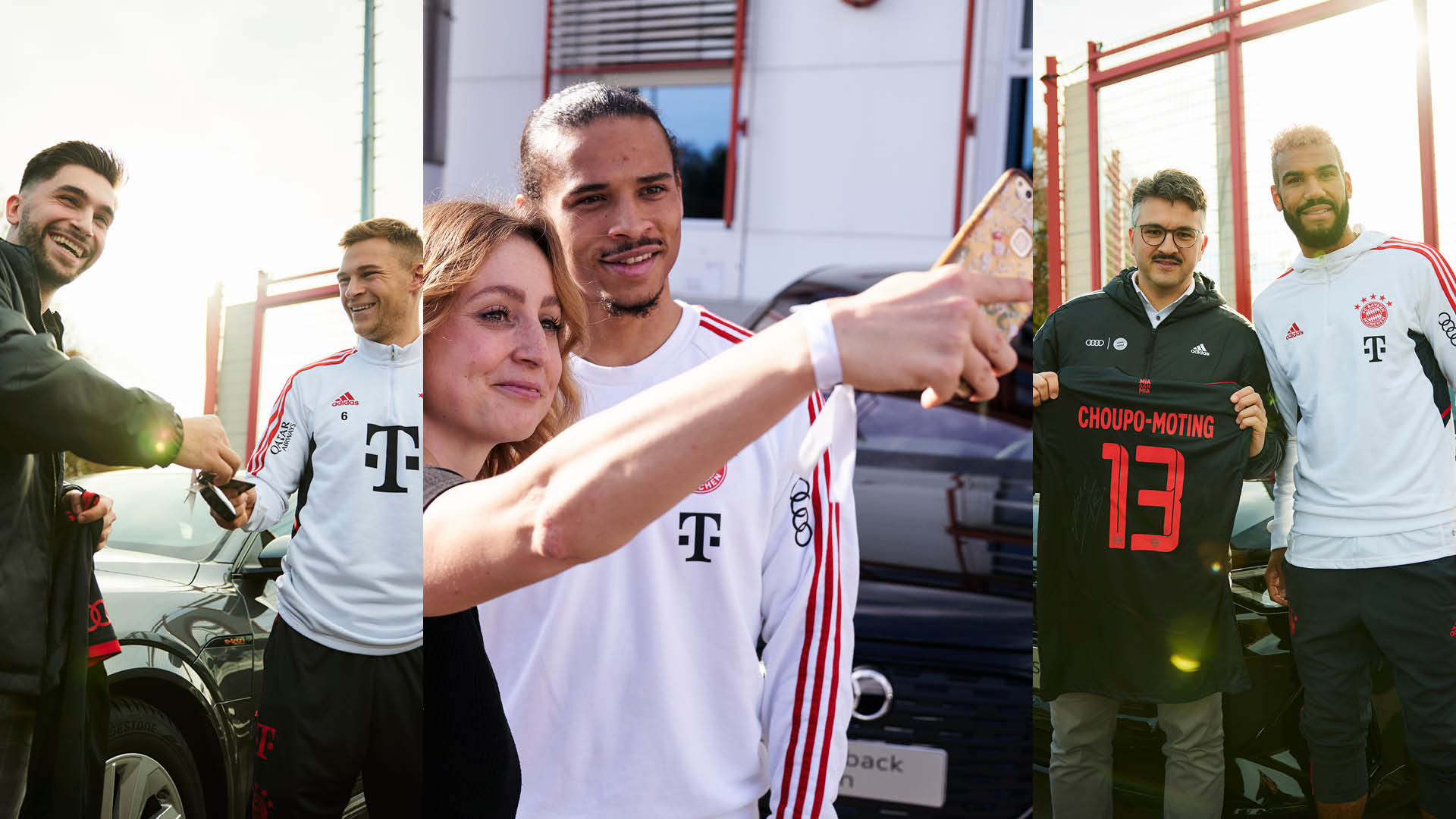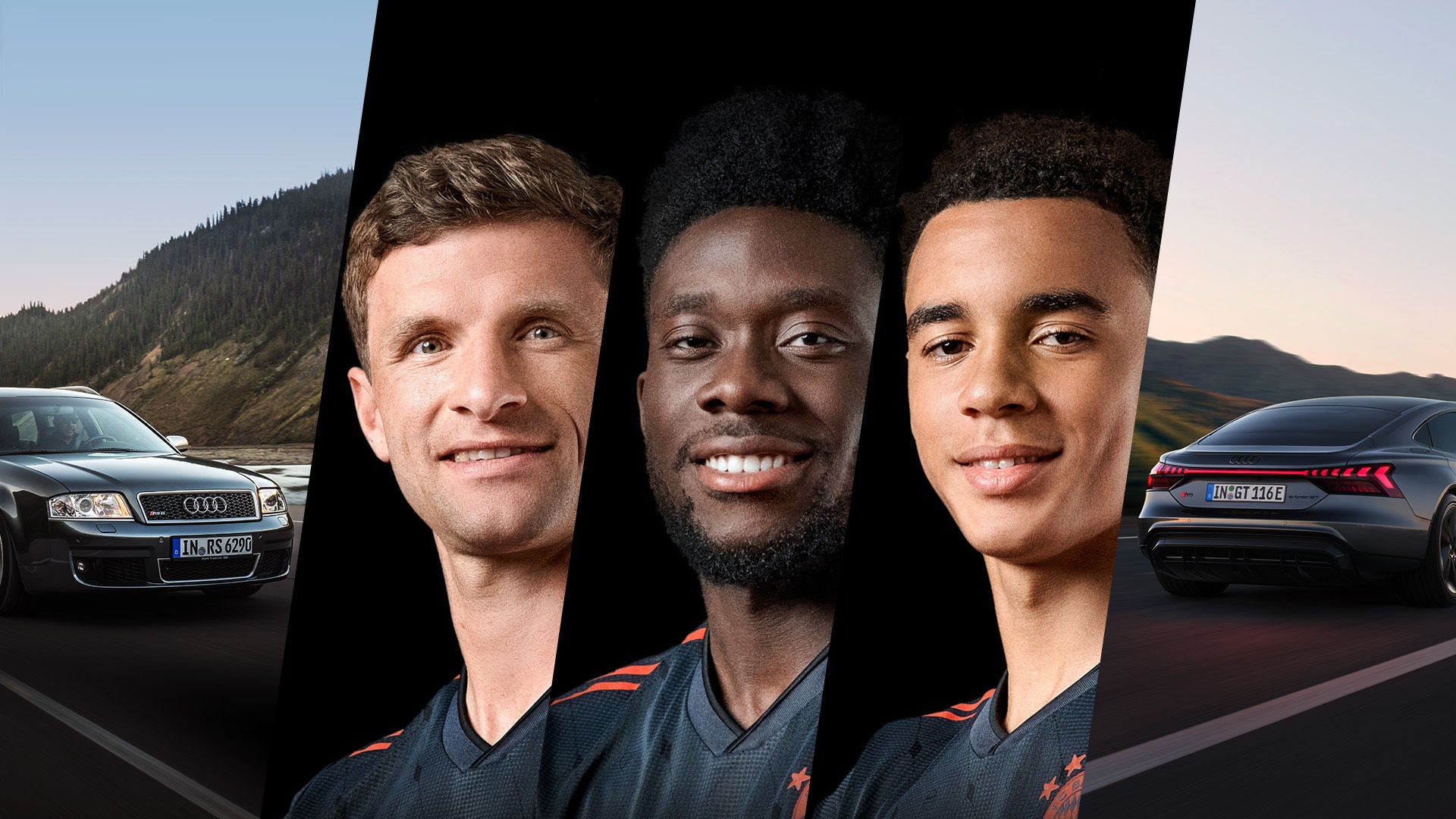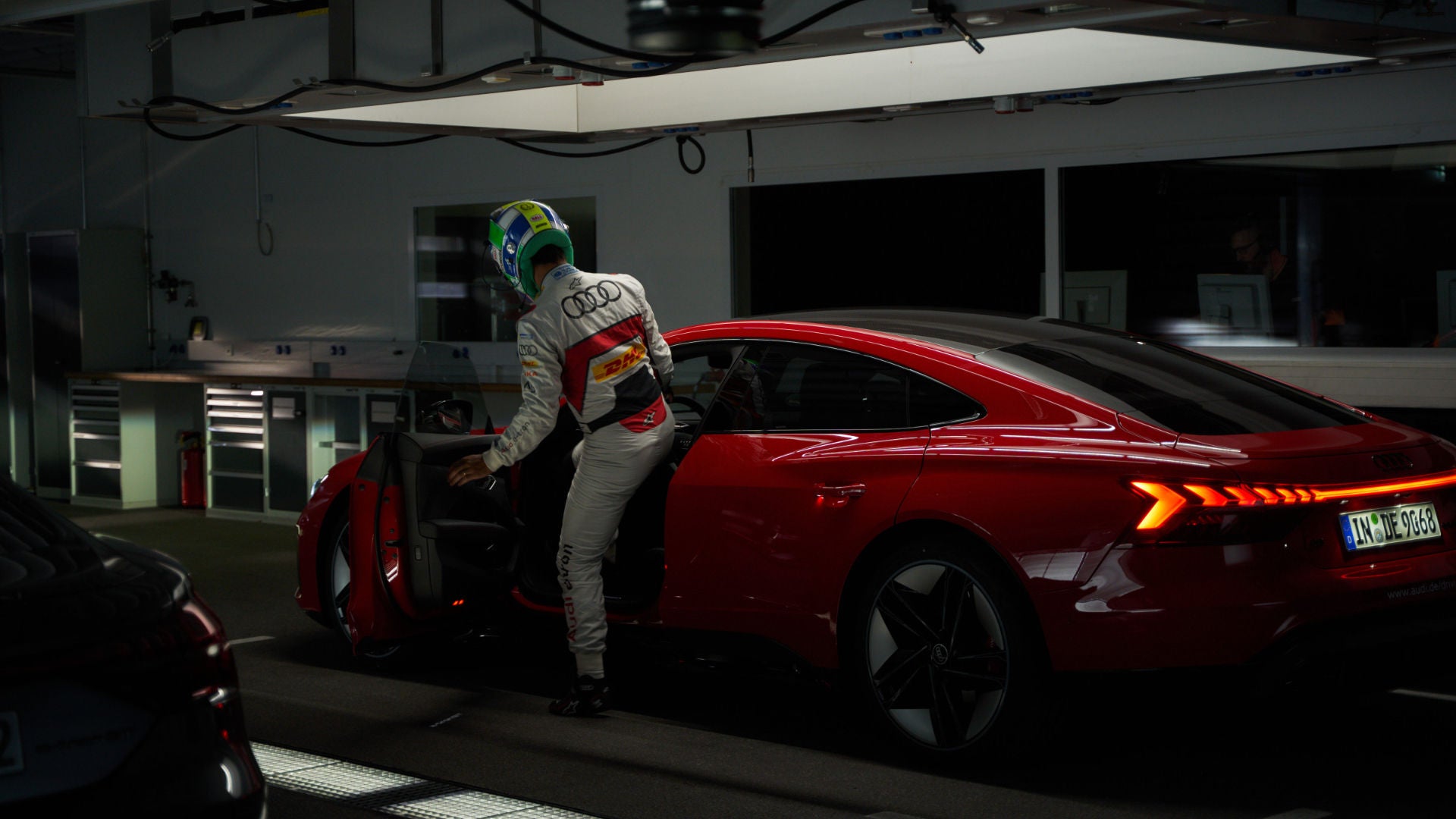Audi and football: an electrifying partnership
Football and the Audi brand have a great deal in common: dynamic, enthusiastic and stylish, with a passion for perfection. We also know the competition, have to maintain focus and must stay onside. As a partner of successful international football clubs such as FC Bayern Munich, we don’t just want to create electrifying moments on the road, but in the stadiums of Europe’s top clubs too.




